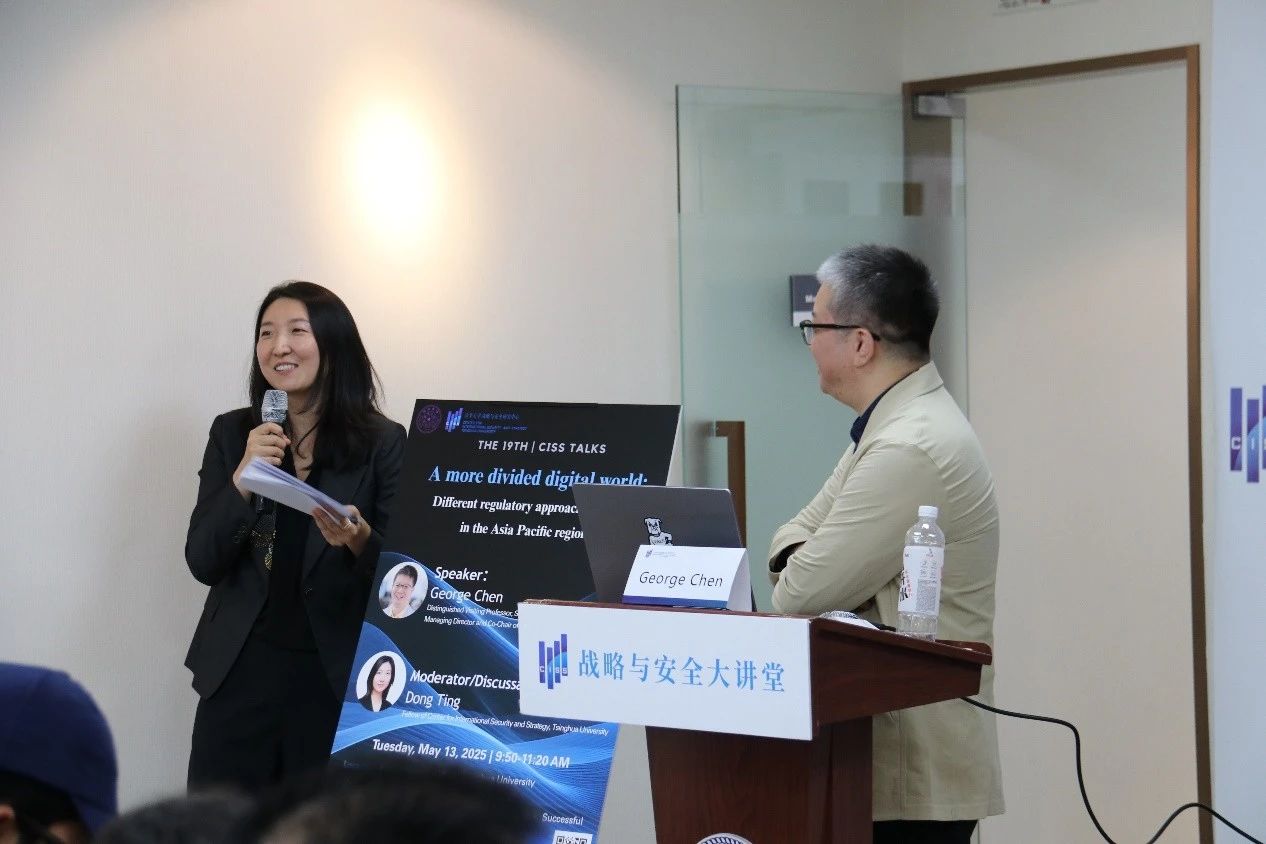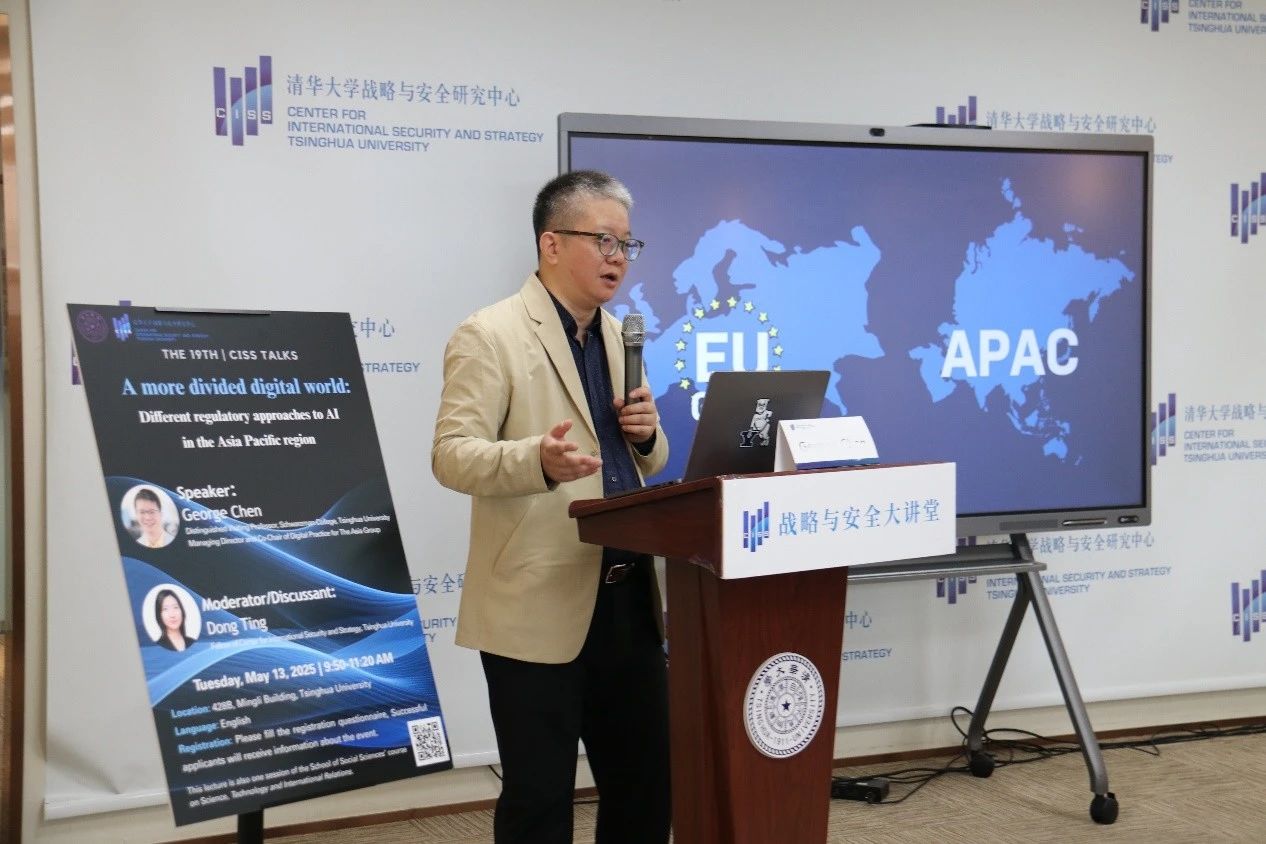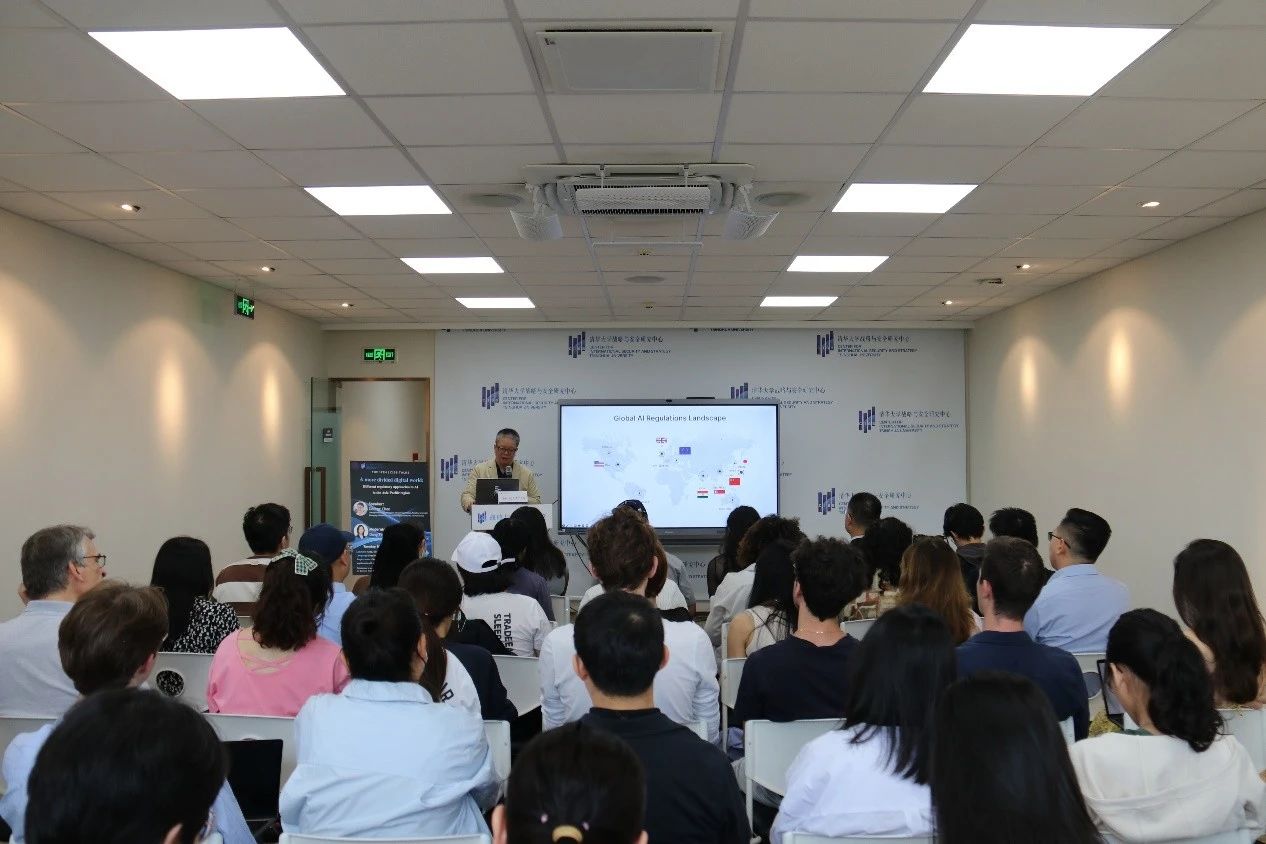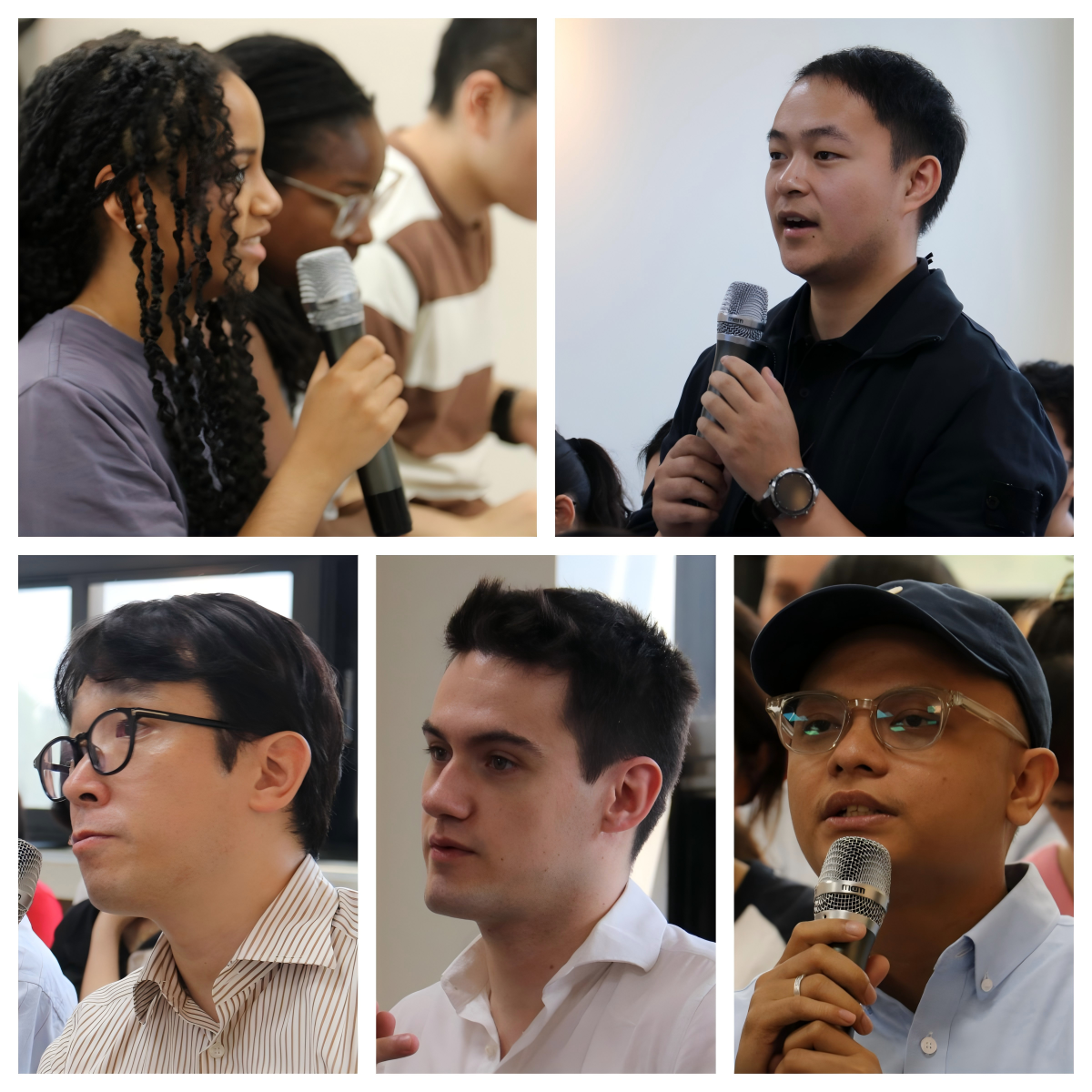On May 13, the Center for International Security and Strategy (CISS) at Tsinghua University held the 19th session of its CISS Talks series. The guest speaker was George Chen, Distinguished Visiting Scholar at Schwarzman College, Tsinghua University, Senior Fellow at the Centre for Civil Society and Governance at the University of Hong Kong, and former Meta (Facebook) Head of Public Policy for Greater China, Mongolia, and Central Asia. His talk, titled "A More Divided Digital World: Different Regulatory Approaches to AI in the Asia-Pacific Region", was moderated by Dr. Dong Ting, Fellow at CISS, and attended by nearly 60 students and faculty from Tsinghua's Schwarzman College, School of Social Sciences, and other institutions.

In his lecture, George Chen offered a comprehensive analysis of the development of artificial intelligence, the challenges of AI governance, and the dynamics of U.S.-China interaction in the global AI landscape. He began by reviewing the history of AI development, noting that while the conceptual foundations of AI trace back to World War II, commercial applications only began to emerge in the early 21st century. The launch of ChatGPT by OpenAI in 2022 marked a turning point that brought AI into the public spotlight.

By comparing the technical philosophies of Mark Zuckerberg (Meta) and Sam Altman (OpenAI), Chen highlighted a key divergence in current AI development pathways: open-source approaches aim to mitigate the risks of platform monopolies, while closed-source models prioritize stable and secure performance. This reflects underlying differences in strategic choices driven by varying commercial interests.

Chen argued that dividing global AI governance into three models—"market-driven" (U.S.), "heavily regulated" (EU), and "government-led" (China)—is overly simplistic and risks further politicizing and fragmenting the digital world. In reality, the Asia-Pacific presents a more diverse and pragmatic picture: countries like Japan, India, and Singapore emphasize innovation-led growth; Indonesia and Kazakhstan are leveraging open-source technology for domestic applications; and China is actively engaging in the development of global AI standards while adjusting its policies to balance security and innovation.
Due to different national priorities in balancing development and security, AI regulation in the Asia-Pacific is inherently fragmented. Chen suggested that regional platforms such as ASEAN could facilitate "soft coordination" mechanisms to promote mutual recognition of data flow rules, encourage corporate social responsibility, and guard against technological monopolies and digital colonialism.
He also noted the structural differences between China and the U.S. in terms of technology development. While U.S. companies are primarily private-sector-driven and guided by commercial interests, China's approach integrates national strategic goals with enterprise innovation. These differences extend to global market strategies as well: U.S. firms tend to focus on North America and Europe, while Chinese companies are exploring a broader range of international markets. On global digital governance, China has actively participated in rulemaking within multilateral frameworks such as the United Nations, while U.S. engagement tends to vary depending on its domestic political cycles.
Chen concluded by stressing that technological development should ultimately serve human well-being. The research and application of AI should uphold cultural diversity and aim for inclusive and balanced global progress. Effective global AI governance requires the participation of all nations to build a more equitable and sustainable technological environment.

During the Q&A session, attendees engaged actively with questions on issues such as cultural tensions and ethical dilemmas in AI regulation and the challenges of globalizing China's large language models. Notably, the talk was also attended by Prof. Madeline Carr from University College London and David Sandalow, former U.S. Assistant Secretary of State for Energy and Climate and current visiting professor at Columbia University.
